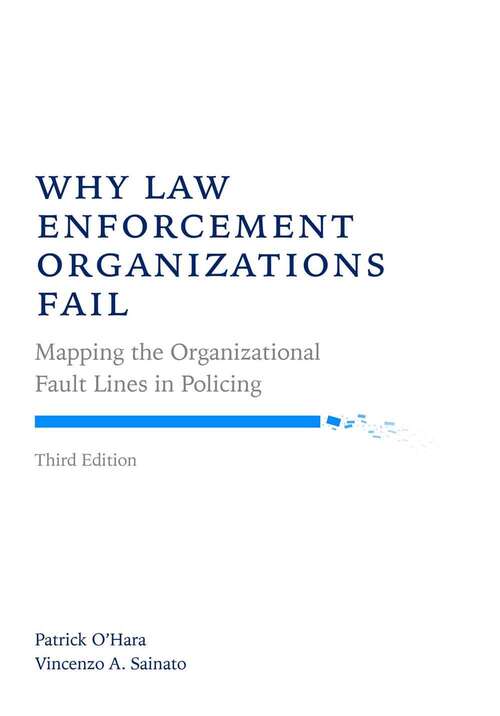
Why Law Enforcement Organizations Fail: Mapping The Organizational Fault Lines In Policing
Business and economics, Police and military
Synthetic audio, Automated braille
Summary
Why Law Enforcement Organizations Faildissects headline cases to examine how things go wrong in criminal justice agencies. The third edition features new cases in each chapter including coverage of LaQuan McDonald's death; excessive force in Baltimore and during the Ferguson… riots; and the death of Deborah Danner, a mentally ill woman in New York. Highlight cases that remain from earlier editions include New Orleans' Danziger Bridge after Hurricane Katrina; the death of Amadou Diallo; the Jon Benet Ramsey murder investigation; and the conflagration that ended the siege at the MOVE house in Philadelphia. These human tragedies and organizational debacles serve as starting points for exploring how common structural and cultural fault lines in police organizations set the stage for major failures. The author provides a framework for sorting through these cases to help readers recognize the distinct roles of operational mechanics, organizational structures, rank and file culture and executive hubris in making criminal justice agencies vulnerable to failure. The book examines how dysfunctions such as institutional racism, sexual harassment, systems abuse and renegade enforcement become established and then readily blossom into major scandals. Why Law Enforcement Organizations Fail also shows how managers and oversight officials can spot malignant individuals, identify perverse incentives, neutralize deviant cultures and recognize when reigning managerial philosophies or governing policies are producing diminishing or negative returns. This book is jargon-free and communicates plainly with students and criminal justice professionals. This is a highly-teachable book that also provides pragmatic long-term guidance for how to deal with crises, prevent their recurrence and restore organizational legitimacy. This book is an excellent centerpiece for any class on police organization and management, criminal justice policy or police-community relations.